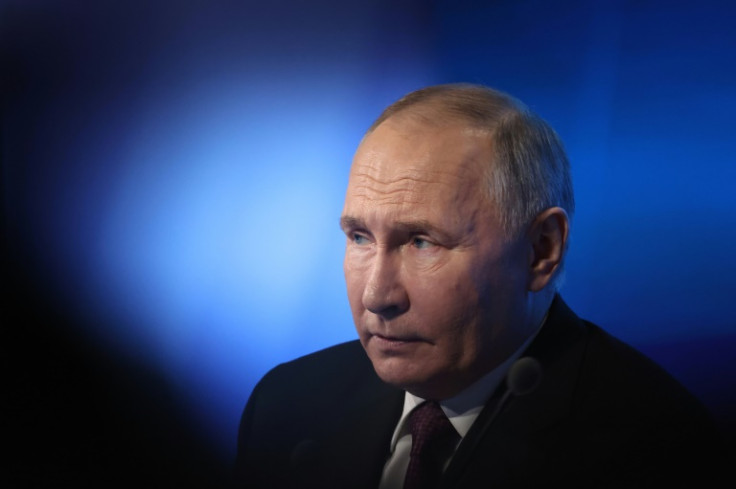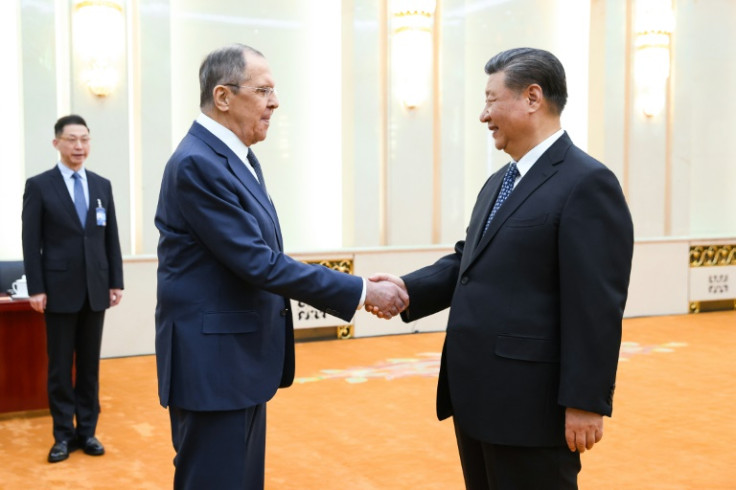
Russian President Vladimir Putin said Thursday he plans to visit China in May, his first planned trip abroad since re-election as Moscow seeks deeper ties with Beijing.
The West has viewed Russia and China with increased anxiety over the past two years as they boost military co-operation and seek to expand their global influence.
"A visit in May is planned," Putin said at a business forum in Moscow, without providing further detail. The Russian leader last visited China in October 2023.
Days before Russia launched its full-scale military assault on Ukraine in February 2022, Beijing and Moscow declared a "no limits" partnership and have since boosted trade to record highs.
Moscow has looked to China as a crucial economic lifeline since the West hit Russia with unprecedented sanctions over its military offensive.
China has meanwhile benefited from cheap Russian energy imports and access to vast natural resources, including steady gas shipments via the Power of Siberia pipeline.
But their close economic partnership has come under close scrutiny in the West, which has threatened to sanction overseas banks and companies that work with Moscow.
The Izvestia newspaper reported in March that Chinese lenders Ping An Bank and Bank of Ningbo had stopped accepting payments in Chinese yuan from Russia, alongside several smaller banks.
The Kremlin admitted there were some problems with cross-border transactions, but said the West was to blame for putting "unprecedented pressure" on Chinese firms.
Putin's announcement came shortly after US Secretary of State Antony Blinken landed in Beijing, in part to defuse tensions with the rival power.
Both Beijing and Moscow have been outspoken in their criticism of the United States.
Chinese President Xi Jinping and Putin in February accused Washington of "interfering" in their countries' affairs during a telephone call.
Beijing has refused to condemn Moscow's Ukraine offensive, instead offering itself as a potential mediator between the two sides.
Earlier this month, Russian Foreign Minister Sergei Lavrov said China's peace plan, which critics have called "vague", was the most reasonable any country had put forward.
"This plan has been criticised for being unspecific... But it is a reasonable plan that the great Chinese civilisation has put forward for discussion," Lavrov said.
China has itself been criticised by the United States over a number of thorny issues, including increasingly belligerent behaviour toward self-ruled democratic Taiwan, which Beijing claims as its territory.
Most recently, tensions have grown over Washington's move to ban the popular social media app TikTok, which is owned by Chinese company ByteDance.








